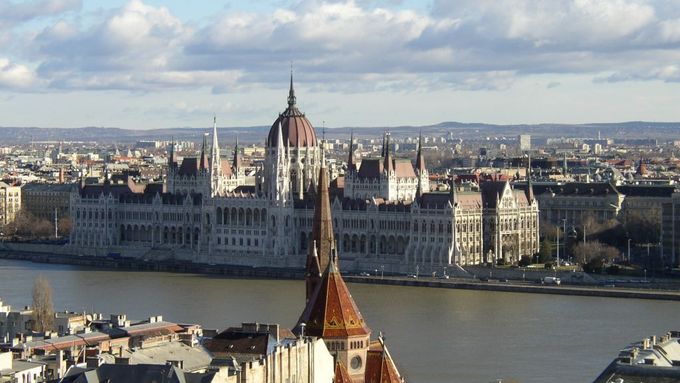Budapest - Klubrádíó's office in Budapest is small, but its current role in the political turmoil in Hungary is huge.
The Hungarian private radio broadcaster has became the symbol of struggles over the new media law approved by the government of PM Viktor Orbán.
The radio, well-known for its critical stance to the government, is threatened with having its license taken away, which would mean nothing less than the broadcaster's end.
Crisis of media? They have alienated from common people
Viktor Orbán's approach to Hungarian media has already been criticized by the EU.
Klubrádíó's editor-in-chief Ferenc Vicsek said to Aktualne.cz's reporter that he cannot believe that the freedom of speech in Hungary is under threat so many years after the fall of Communism.
Vicsek said that Fidesz, the governing party, has created a media council controlled exclusively by its members, and they have decided to destroy the broadcaster. Its conflict with the government has made the radio station very popular in Hungary, but this alone cannot save it.
Fidesz won 52 percent of votes in the 2010 election, which brought him 68 percent of the seats in the Hungarian parliament - a 2/3 constitutional majority.
In his first speech after the election, Viktor Orbán spoke about a new revolution, comparing the present to the year of 1848 when Hungarians fought for independence.
Now, the cabinet is criticized by the European Commission for its effort to limit the freedom of the media, the central bank and the judiciary system.
"I don't like him too much, he has been there for such a long time", said Tamás Miklós, a vendor at Budapest's marketplace, referring to the fact that Viktor Orbán has been in the Hungarian politics since the end of the 1980s. "But I don't like the EU pushing us somewhere. There should be some dialogue or agreement," Miklós said.
The economic situation in Hungary is getting worse, with the currency (forint) falling down and the GDP growth estimated to 0.5 percent this year.
At the mercy of eurozone crisis: Czech economy in 2011
Initially, the government refused to ask for the IMF/EU aid, but at the end of 2011 it changed its mind. The economic worries even led Viktor Orbán to promise in the European Parliament to change some of the laws criticized by the EC.
David Prokop, a Czech who has been living in Budapest for nine years, speaks about the fear of the future felt by many Hungarians, whose quality of life has worsened recently. But in addition, people fear the present, too, said Prokop.
People working in the public sector keep their criticism for themselves. They do not want to lose their job, he explained.
Prokop added that the majority of Hungarians do not blame the EU for the country's problems, even though the hardliners of Fidesz and Hungary's right wing promote this view. Last week, supporters of Jobbik, a far-right party, burned an EU flag at a demonstration in Budapest, asking for Hungary's exit from the EU.
In addition, Klubrádíó's Ferenc Vicsek warns that Viktor Orbán is building his cult of personality. "Members of the parliament and another people from his party fear him," said Vicsek.
Orbán's revolution is going on. But as the history teaches us, the 1948 revolution was defeated by the Austrian and Russian army, and the 1956 rebellion was crushed by Soviet tanks.
Of course, the time has changed, and no military intervention from Brussels or elsewhere is looming over Hungary. But the next elections, scheduled on 2014, will be a referendum on Viktor Orbán's governing style. The Orbán revolution may thus end up crushed by the very Hungarians.







